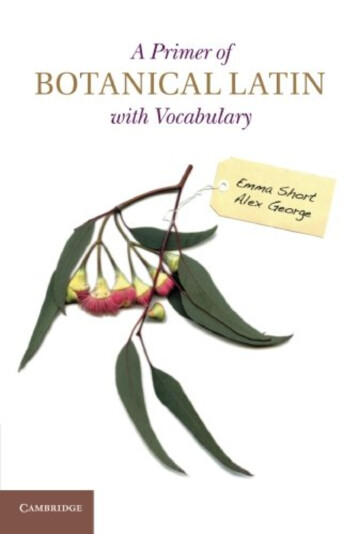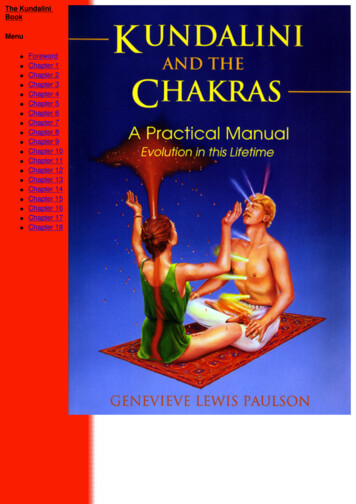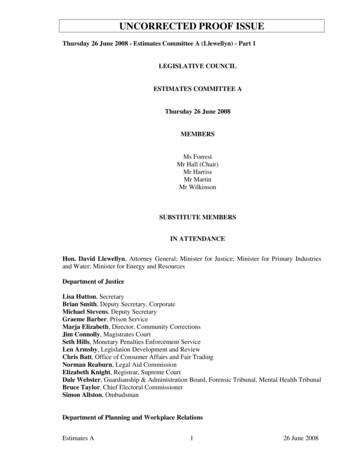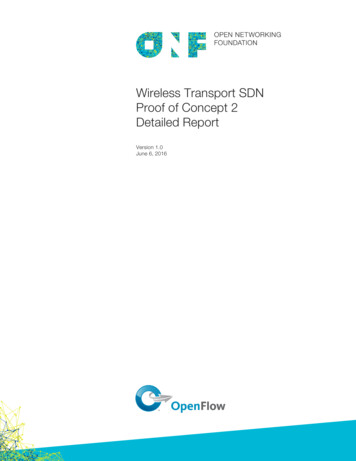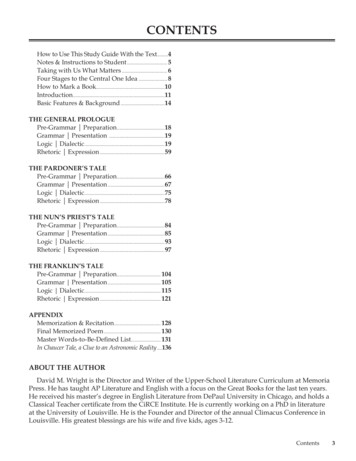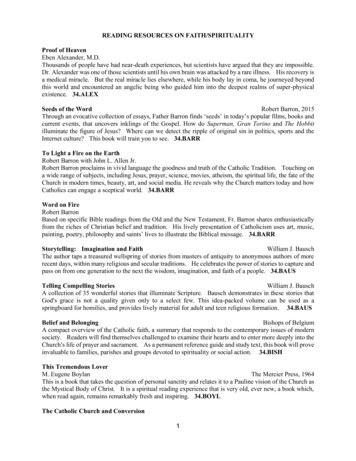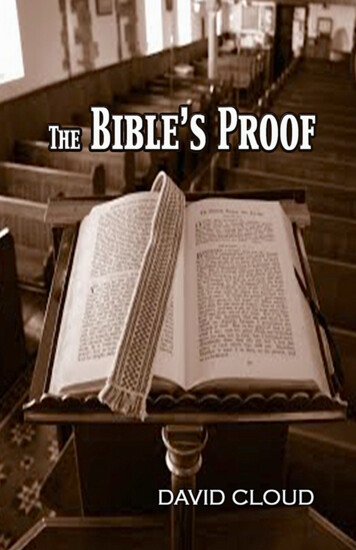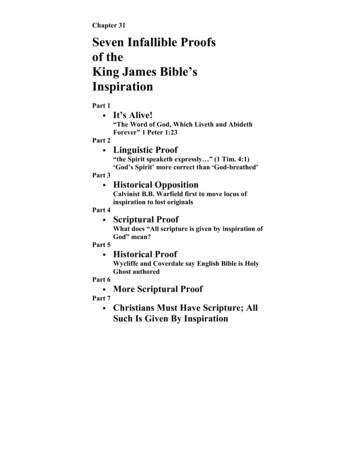
Transcription
Chapter 31Seven Infallible Proofsof theKing James Bible’sInspirationPart 1 It’s Alive!“The Word of God, Which Liveth and AbidethForever” 1 Peter 1:23Part 2 Linguistic Proof“the Spirit speaketh expressly ” (1 Tim. 4:1)‘God’s Spirit’ more correct than ‘God-breathed’Part 3 Historical OppositionCalvinist B.B. Warfield first to move locus ofinspiration to lost originalsPart 4 Scriptural ProofWhat does “All scripture is given by inspiration ofGod” mean?Part 5 Historical ProofWycliffe and Coverdale say English Bible is HolyGhost authoredPart 6 Part 7 More Scriptural ProofChristians Must Have Scripture; AllSuch Is Given By Inspiration
1132 HAZARDOUS MATERIALSPart 1“Liveth and Abideth For Ever”Your Holy Bible is alive ― handle with care!“ not of corruptible seed, but ofincorruptible, by the word of God, which,liveth and abideth for ever” (1 Pet. 1:23).“The words that I speak unto you, they are spirit,and they are life” (John 6:63).“ who received the lively oracles to give untous” (Acts 7:38).“For the word of God is quick ” [The Biblecontrasts the “quick and the dead” 2 Tim. 4:1].“Liveth,” But Where?If the word of God liveth and abideth forever, where is it?The actual ‘originals’ have not been the recipient of the promiseof preservation, as they have long since dissolved. As has beendemonstrated in the previous chapters, all currently printedGreek and Hebrew editions contain the idiosyncratic ideas oftheir individual editors. The answer to the question, ‘Where isthis living word of God’ lies in God’s promise given in Isaiah28 and fulfilled in Acts 2.“With men of other tongues and other lips will Ispeak saith the Lord” (1 Cor. 14:21).In this verse God says, “I speak” “other tongues.” Noticethat the words “other tongues” are plural. Vernacular Bibles areGod speaking, just as truly as he did to the Greeks andHebrews. His living, speaking voice has not diminished as he
SEVEN PROOFS OF KJB’S INSPIRATION1133speaks with “other tongues.” He is still speaking. Today’s HolyBibles, be they English or Korean, are not just preservedmuseum words or accurate but lifeless equivalencies. They arehis very “spirit” and “life.” Jesus says, “The words that I speakunto you, they are spirit, and they are life” (John 6:63). Theycontain just as much of the spirit and life of God as did theoriginals. The word of God which “liveth and abideth forever”was inspired, is inspired and will be inspired, forever. In theKing James Bible, we hold in our hands the very “word of God,which liveth and abideth for ever” (1 Pet. 1:23). “[L]iveth”and “abideth” define inspiration and preservation. Inspirationabides and its life is preserved.The inherent “spirit” and “life” of scripture are what enablesit to bring forth the spiritual new birth. Only living things canreproduce themselves. 1 Peter 1:23 says, “Being born again, notof corruptible seed, but of incorruptible, by the word of God,which liveth and abideth forever.” It “liveth,” just as Jesussaid; his words “are life.” We can hide the scripture in ourhearts (Ps. 119:11); we can handle it (2 Cor. 4:2); it is nigh us,even in our mouth (Rom. 10:8). And finally, we will be judgedby it (John 12:48). Its life is “incorruptible.” It is alive. TheHoly Bible is actually God speaking now.Toad’s lungs are living breathing things. Why would Godcontinue to make them perfectly, to breathe out only a croak oftoad’s breath, and not make vernacular Bibles, which speak hisvery words, just as alive? Or did the Bible croak? New versionsare buried when their copyright owner dies, since they are nolonger propelled by the hot air of advertising campaigns.The King James Bible remains alive; its English words aredrawn from what Wycliffe calls the inspired “Scriptures intongues,” which were born in Acts 2. The KJB is the Biblical
1134 HAZARDOUS MATERIALSEnglish through which God can speak to the two billion peoplewho speak English as a first or second language. They are hisEnglish words. Remember, he invented languages at the towerof Babel; he also said, “I speak” “other tongues.”Earlier he spoke a Biblical form of Koine Greek to many inthe first centuries after Christ. The book of Revelation recordsthe warning Christ gave to the Greek-speaking church: He saidthat their candlestick (that is, their church which holds forth thelight of the word of God) would be removed if they did notrepent. The unorthodox character of the Greek Orthodox churchsince the 5th century exhibits its continued rebellion. This isevidenced in their Greek manuscripts, which remove suchthings as 1 John 5:7 and Acts 8:37, which reproves their heresyof infant baptism. Therefore their candlestick was removed. By600 A.D this form of ancient Greek was replaced by ModernGreek. No one today speaks Biblical Koine Greek. We have aliving God who speaks to living people. God now speaksthrough pure vernacular Holy Bibles which sprung from theintervention of the Holy Ghost recorded in Acts 2, as foretold inIsa. 28:11, 13, and 14. The chapter “The Wobbly UnorthodoxGreek Orthodox Crutch” details the questionable character ofGreek manuscripts. The chapter “The Scriptures to All Nations”demonstrates the work of the Holy Ghost in providingscriptures for “every nation under heaven,” as described in Acts.(The word ‘inspired’ is derived from the verse, “All scripture is given by inspiration of God ”Grammatically, the Bible can be called ‘inspired.’ Consider this grammatically identical parallel: ‘Allpure water is produced by the distillation of Jones Bottled Water Company.’ This water is thereforecalled ‘distilled water,’ just as the Bible is called ‘inspired scripture.’ As a word of personal testimony Imight add that before I was saved I was determined to read the entire university library. But when I finallyread the King James Bible in my late twenties, I knew it was not a book written by man. I got saved and havenever gotten over the difference between it and other books. It is alive. Later as a professor, the Lord knew Iwould witness to students, so he spread me thin, teaching 17 different college courses, including upperdivision courses in over six different and highly divergent majors, several in which I had no academicexperience. This necessitated much more reading. After sixty years in a world of books, I can say that theKing James Bible stands so far above the books of even the best and brightest men, one could never attributeit to the brilliance of the translators.)
SEVEN PROOFS OF KJB’S INSPIRATION1135Part 2“Now the Spirit Speaketh Expressly ” (1 Tim. 4:1)“All scripture is given by inspiration of God” (2Tim. 3:16).What does “given by inspiration” mean? What is “Allscripture”? These questions hopefully will be resolved for thereader in this section. I will begin with a discussion of the Greektext, only because that is where this discussion usually, and Imight add, somewhat incorrectly begins. My analysis will beBiblical and will not come from the standard corrupt secularizedlexicons and critical editions (such as Strong, Vine, Zodhiates,Moulton, Milligan, Thayer, Wuest, Trench, Vincent, Liddell,Scott, Persbacher, Gesenius, Brown, Driver, Briggs, Scrivener,Berry, Beza, Westcott, Hort, Aland, Metzger, Green, andGinsburg ― all are proven unreliable in various degrees in thisbook and New Age Bible Versions).The Greek word “theopneustos” is translated “is given byinspiration of God.” The first part of the word is theo whichmeans “God.” The second part, from pneuma, is almost alwaystranslated as “spirit” (322 times; 91 times as ‘Ghost’ or ghost;once as ‘wind,’ once as ‘life,’ and never as ‘breath’ or‘breathed’ (J.B. Smith, Greek-English Concordance, Scottdale, PA: Herald Press, 1983).Given the vast preponderance of the translation of this Greekword into English as “spirit,” it is logically translated with theEnglish “spir,” as seen in the word “inspiration.” The use ofthe word “spir,” meaning “spirit,” lines up perfectly with John6:63, where Jesus defines his words. He said,“[T]he words that I speak unto you, they arespirit, and they are life.”
1136 HAZARDOUS MATERIALSIn other words, the word of God is not just ink on paper, likeother books; its words are “spirit.” Since the spirit of God isalive, his words are also alive. Consequently John 6:63concludes that the word of God is “life.”(It would only be marginally correct to say that theopneustos isconnected directly with the breath of God (i.e. Acts 9:1 ĕmpněō “breathingout”), since there are different Greek words used for ‘breathed,’ such as thatused in John 20:22 from the root phusaō and that used in Acts 17:25 (pnoe ).The latter is translated once as “breath” and once as “wind” in Acts 2:2. Thespelling of theopneustos (i.e. from the noun pneuma) precludes it being fromthe verb pneo, as Phil Pins suggests, in his effort to separate it from the noun‘spirit’ and join it to the verb ‘breathe.’ The current repetition of thedefinition of “theopneustos” as “divinely breathed” comes directly fromliberals such as James Strong and Harold K. Moulton. It is rooted in theirpenchant for secularizing Bible words.)Breath is tangible; the spirit is not tangible. Those who areafraid to call the KJB “inspired” are wrongly focusing on thephysical character of Strong’s or Moulton’s erring definition,“breathe”; they know that God did close the canon and stoppedthe physical sign gifts. But God’s “Spirit” is still striving withman, comforting man, and leading man into all truth. God neversaid the Spirit would not translate the canon; he did provide forthis in Acts 2 when “every man heard them speak in his ownlanguage” from “every nation under heaven.” Although theGreek word pneuma can be seen in secular English as‘pneumonia’ and ‘pneumatic,’ both relating to air, its Biblicalusage is exclusively as ‘spirit,’ never as ‘breathe.’ Even Hodge,as noted in Augustus Strong’s Systematic Theology on p. 198admitted that ‘spirit’ is the correct correlative.Not surprisingly, corrupt new bible versions, such as theNIV, replace “inspiration” with the secular word “breathed,”thereby erasing the root ‘spir’ and its connection to the Spirit of
SEVEN PROOFS OF KJB’S INSPIRATION1137God. The Calvinist produced English Standard Version (ESV)similarly says “breathed out” (yet the word “out” also appearsin no Greek texts).Secular Dictionaries and the Word “inspiration”Remember:1. Dictionaries are written by fallible men.2. Dictionaries contain numerous definitions,which apply to distinct contexts; thesedefinitions are not interchangeable to othercontexts.(To understand that the varied definitions of a wordcannot be intermixed, look at the dictionarydefinition of the word “save.” Webster’s NewCollege Dictionary shows that its varied meaningsinclude: “To copy (data) from a computer’s main memory to a storage medium so that it can be used again,”“To accumulate money or goods,” “to prevent anopponent from scoring or wining, esp. in hockey,”“A game in which a relief pitcher preserves a victoryby protecting a team’s lead,”“To prevent waste,”“To treat with care in order to avoid fatigue, wear ordamage,” and“To put aside for future use.” The definition “To deliver from sin,” which is thetheological definition, is also listed. If one used anyof the other definitions of the word ‘saved,’ todescribe what Jesus Christ did for us, they would bewrong.)
1138 HAZARDOUS MATERIALSAs one might expect, dictionaries, made by unregeneratemen, often give very weak or strictly secular definitions of“inspiration.” After giving several secular definitions of‘inspiration’ (including “breathing”), which do not apply totheological contexts, the Webster’s New World Dictionary saysthat in theological contexts, (“Theo.”) ‘inspiration’ means “adivine influence upon human beings, as that resulting in thewriting of the Scriptures.” The Webster’s II gives six differentusages, of which only one includes “breathing”; only one of thesix applies to the Bible. That one says to “arouse by the divineinfluence.” The word “divine” is a quality, a descriptiveadjective; it is not “God,” who is a person. The term “influence”implies a minor involvement, not an all-encompassing one.Even their theological definition is watered-down.Other more expanded dictionaries give a long list ofdefinitions based upon context. These can be misused by thosewho apply the wrong definition to the wrong context. TheWebster’s 1828 Dictionary gives three separate definitions of“inspiration”; the first two definitions are secular and the thirddefinition is theological. The first two include inhaling andbreathing; they are distinct from the third usage and definitionwhich says, “The infusion of ideas into the mind by the HolySpirit All Scripture is given by inspiration of God 1 Tim. iii.”According to this, inspiration is the work of God’s Spirit, notGod’s breath.The twenty volume unabridged Oxford English Dictionaryalso actually uses 2 Tim. 3:16 as a sample of the strictlytheological usage of the word ‘inspiration’. Those who do notknow how to use the OED or Webster’s 1828 grasp any part oftheir lengthy entries on “inspiration”; this cannot be done. TheOED, for example, divides all words into their various usages
SEVEN PROOFS OF KJB’S INSPIRATION1139by Roman numerals (i.e. I, II, III, IV et al.). Under each usage isgiven examples of the word in historical contexts which elicitthat particular definition. The word ‘inspiration’ is divided intotwo categories (i.e. I, II). The first usage (I) is “Literal(physical).” It includes as “rare” the action of blowing. Itincludes, as much more common, the action of “breathing in.”No scriptures are used as an example.The second usage (II) is the “Figurative senses.” It too isdivided into two headings. The first includes, “The action ofinspiring; the fact or condition of being inspired.” The verse inquestion falls under this category. The first of these istheological (“a. spec. Theo., etc”). The very verse in question,“2 Tim. iii. 16,” is cited from Tyndale’s New Testament as theperfect example of the theological usage of the word“inspiration.” (The definition of Bible words comes from theBible itself!) It defines the usage in 2 Tim. 3:16 as,“A special immediate action or influence of theSpirit of God upon the human mind or soul;said esp. of that divine influence under which thebooks of Scripture are held to have beenwritten”Under this category another example includes a A.D. 14501530 citation which says, “He sente the holy goste onPenthecoste sondaye to enspyracyon of hys dyscyples.” (Hesent the Holy Ghost on Pentecost Sunday to inspiration of hisdisciples.) Interesting, this old quotation connects the word“inspiration” with Acts 2, as suggested in this chapter.The second subcategory under “Figurative senses” includessecular usages, which are defined as “a breathing or infusioninto the mind or soul.”
1140 HAZARDOUS MATERIALSAccording to the plan of the OED and other dictionaries, aword used in the very example for one kind of usage couldnever be defined by the definition of another kind of usage.Since the OED, like Webster’s, selects 2 Tim. 3:16 itself to givethe definition of “inspiration,” and defines it as the “influence ofthe Spirit of God,” then one could not use the OED orWebster’s to support the definition “breathed” for that verycontext (see OED, s.v. inspiration, vol. 7, p. 1036).Understanding how to use, not misuse, a dictionary is a mostbasic skill. Highly refined tools, such as the OED, should not beused by novices to promote their agenda.A word’s context is the determiner of usage and meaning.That is why the OED’s definition (“influence of the Spirit ofGod,”) is taken directly from the words of 2 Tim. 3:16(“inspiration of God”). A dictionary’s definition of Biblewords came originally from the Bible itself; therefore there isno reason to consult a secular dictionary to define Bible words.This can best be seen by viewing the unabridged OED. To takeanother context, particularly a secular one, to define the word‘inspiration’ as “breathed,” is the agenda of someone who eitherknows nothing about lexicography or has an agenda tosecularize the Bible (e.g. Strong, Moulton, Trench et al.).One must understand the origin, history, and purpose of theOED and other dictionaries, as demonstrated in works such as,Lost For Words, a history of the OED by Oxford professorLynda Mugglestone. The founder of the Oxford EnglishDictionary, R.C. Trench, was rabidly against the Holy Bibleand its all pervading influence and sociological control. Hewanted the dictionary to show that words were being used insociety in ways which differed from the historical Bible usage.He wrote two entire books against the KJB: On the Authorized
SEVEN PROOFS OF KJB’S INSPIRATION1141Version of the New Testament, in connection with some recentproposals for its Revision (New York, 1858) and Synonyms ofthe New Testament (Cambridge, 1854). In these books he set thestage for the watered-down liberal definitions seen in today’snew versions. On the title page of one of these books, he placedthe same serpent logo used by Luciferian H.P. Blavatsky.Because of his hatred for the KJB, he was asked to be a memberof the Westcott-Hort Revised Version Committee. He merits anentire chapter in this book for his vile re-definition of Biblewords. As one might expect, The Shorter Oxford EnglishDictionary’s definition of ‘inspiration’ also drops the name“God” for the adjective “Divine.” It charges that the inspirationof the Scriptures “are believed by some” only. Instead of citingthe Bible, it sites Trench’s friend and Ghostly Guild founder,“B.F. Westcott” writing what the “early Fathers” believed,instead of what the scripture states. (Other chapters in this bookdetail the heresies of these ancient Catholic “Fathers.”The OED editors, which followed Trench, also believed thatthey were not compiling prescriptive ‘definitions,’ butdescriptive samples of how a word has been used in differentcontexts (secular, not always Bible-based contexts). The OEDwill allow the inclusion of the Biblical definition of words, butmerely sets it in the midst of numerous other usages. To takeone of its secular definitions and apply it to re-define the Bible’shistoric usage is to fall squarely into the clutching hands of R.C.Trench, whose official portrait shows him donning the ‘X’medallion of the Masonic Grand Scottish Knights of St.Andrew.God demands no knowledge of Greek or the methodologyof lexicographers. The definition of “inspiration” is “plain tohim that understandeth” (Prov. 8:9). The word “inspiration” is
1142 HAZARDOUS MATERIALSa compound word. Even a child can see the definition within theword ‘in-spir-ation.’ Any English-speaker has been preconditioned to know the meaning of the phonemes “in” and“spir,” through their previous usage in the Bible and elsewhere.The brain stores words in files in alphabetical order. The ‘spir’file will take the mind directly to the word “spirit.” It is calledcognitive scaffolding. (In Awe of Thy Word explains this ingreat detail.) The suffix ‘ation’ changes a verb into a noun ofaction (e.g. visit-ation, vex-ation). Therefore ‘in-spir-ation’conveys the active (because the subject, ‘scripture,’ is passive)sense of the Spirit acting in the scriptures.Men have always known that it is by God’s Spirit, not hisbreath, that the succession of the scripture “is given.” OliverCromwell in his 1653 Speech the First said,“The true Succession is through the Spirit givenin its measure. The Spirit is given for that use,‘To make proper Speakers-forth of God’s eternalTruth;” (Cromwell used the 1638 KJB, not the Geneva.).King James I said in his 1599 treatise, Basilikon Doron,“The whole scripture is dited [dictated] by God’sSpirit, thereby (as by lively word) to instruct andrule the whole Church militant, till the end ofthe world.”Finally, the Bible itself makes it clear that the ever-abidingSpirit of God, not the one-time breath of God, gives life untothe scriptures:“It is the spirit that quickeneth; the fleshprofiteth nothing: the words that I speak untoyou, they are spirit ” (John 6:63).
SEVEN PROOFS OF KJB’S INSPIRATION1143Some will call the Bible, the ‘word of God’ (ignoring whatthose three words mean), but they will not admit that the Bible’swords are still spirit (inspiration). But the Bible is “the sword ofthe Spirit, which is the word of God” (Eph. 6:17). The Bible iswritten, “not in the words which man’s wisdom teacheth, butwhich the Holy Ghost teacheth, comparing spiritual thingswith spiritual” (1 Cor. 2:13).This verse makes it clear that the fleshly minds of the KingJames translators, or any other translators, cannot profit in thegiving of the Holy Bible, without the indwelling direction of theSpirit of God. This is inspiration. Psalm 12:6, 7 says,“The words of the Lord are pure words: assilver tried in a furnace of earth, purified seventimes. Thou shalt keep them, O LORD, thoushalt preserve them from this generation forever.”The words which the LORD keeps and preserves are still hiswords; they do not degrade into the words of mere translators,even after being “being tried in a furnace of earth.” Theseverses contravene those who wrongly say that God inspired theoriginals, but the translators preserve them “for ever.” Only theSpirit can convey his own words; otherwise they would not bethe “words of the LORD,” but would become the words of atranslator. Because the Spirit gives the words, they are neverjust ink on paper, but are themselves ‘spirit.’ Hence, the word“in-spir-ation” is a perfect description of the way in which thequickening Spirit gives words which “are spirit.” The Bible saysof God’s word, “they are spirit, and they are life.” The qualities‘spirit’ and ‘life’ cannot be separated. Words which are nolonger ‘spirit,’ cannot be said to have “life” and therefore willnot “liveth and abideth forever.”
1144 HAZARDOUS MATERIALSThe word ‘preserve’ inherently requires an object ofpreservation. Something must be preserved. There is nopreservation without an object of preservation. If I said, “Theblue suit is preserved,” the suit would still be blue; it would stillbe a suit. A preserved entity retains all of the qualities of theoriginal.To wrongly substitute God’s ‘breath’ for God’s ‘spirit’ is to:1.) ignore the pertinent scriptural parallels of the word ‘spirit.’2.) ignore the component definitional phonemes in the word‘in-spir-ation.3.) ignore the preponderant translation of the word pneuma as‘spirit,’ and never as ‘breath.’ (Pneumatology is the study ofthe Holy Spirit.)4.) follow the definition of liberals, such a H. K. Moulton (andhis father, the corrupt lexicographer and his grandfather, amember of the RV committee) and Bible reviser, JamesStrong, whose agenda was to replace the Spirit-filled KJBwith his own ASV hot air. These men could only supporttheir ‘beloved’ new versions by maintaining that the Spiritof God had not been involved in the previous pure EnglishBible’s translation, but merely had spoken aloud, with hisbreath, in the distant past, constraining himself to three deadlanguages. (Modern Greek and Hebrew are not ancientBiblical Greek and Hebrew).5.) And finally, to wrongly substitute God’s ‘breath’ for God’s‘Spirit’ is to disavow the abiding inspiration of God’swords. This resigns inspiration to an act of past history andmakes today’s Holy Bibles the mere words of men, havingno authority or claim to inerrancy, because they are not thewords of God.
SEVEN PROOFS OF KJB’S INSPIRATION1145“Is Given”If the scripture “is given by inspiration,” then the ‘inspiredoriginals-only theory’ collapses. The old B.B. Warfield theorythat only the original scripture was given by inspirationmandates the changing of the word “is given” to “was given” or“is being given until the canon closes.” The construction doesnot allow for these. The italicized word “is,” used in all Bibleversions, good and bad, is demanded in Greek and Englishconstruction. The past tense word “was” is not even an option.(Invariably, those who deny the inspiration of the Holy Bible, use past tense words, such as“were given” in their explanations. For example, The Miracle of Inspiration wrongly parallels 2Tim. 3:16’s present tense “is given” with the past tense “was once delivered” from Jude 1:3,doing violence to the latter’s parallel past tense verse in Jude 17, which identifies and limitsverse three to “the words which were spoken before of the apostles ” (e.g. Paul, Peter, andother apostles, not Jude, Mark, Luke etc.) (H.D. Williams, The Miracle of Biblical Inspiration:A Refutation of Perfection of Translation , Bible For Today, 2009, pp. 104, 113, 10, 18, 27, 67,68, 104 et al.). Phil Pins wrongly says “ to say “is given” is the verb phrase seems incorrect.”His switch from the KJB’s “is given” to “once given,” is wrongly based upon the idea that theGreek word “given,” which does not appear in any Greek text, might be an “aorist Greekparticiple.” To this imaginary Greek word, he adds the Jehovah Witness/ASV reading, whereinthe solitary word “is” is placed later in the sentence (i.e. “All scripture once given by inspirationof God is ” (Phil Pins’s unpublished Elementary Greek Workbook, c. April, 2009 draft;Emphatic Diaglott, Watch Tower Bible & Tract Society, NY, 1942). It unhappily appears thatboth Pins and Williams may have become contaminated by their association with the NIV’sprogenitor, Moody Bible Institute. The “enemy” may “prevail against” a man of “great strength”and “faith,” such as Samson, Pins, and Williams, when he wanders into enemy territory whereDelilah’s dictionaries “pressed him daily with her words” (Judges 16, Hebrews 11).The KJB construction reads, “is given by inspiration of Godand is profitable ” For those who insist on an analysis ofGreek, observe that in Greek the sentence has no predicate(verb). It has, however two Greek words, which are translated“is given by inspiration of God” and “profitable.” In such acase, when these two words are connected by the conjunction“and,” they must both be preceded by the present tense verb“is.”
1146 HAZARDOUS MATERIALSOf Phil Pins’s suggested JW reading, even Strong’sCyclopedia warns that, “this rendering is liable to insuperableobjections” as “both” must include a verb [i.e. “is”] “if either ofthem” does. It says that a reading such as Pins’s “is at variancewith a common rule of Greek syntax, which requires if therebe an ellipsis of the substantive verb this verb must be supplied Now there exists precisely such an ellipsis [omission] in thecase before us; and as there is nothing in the context whichwould lead to any exception to the rule, we are bound to yield toits force.” “[T]he evidence in favor of the common rendering,derived from the fathers, and almost all the versions, is mostdecided.” The Cyclopedia associates Pins’s reading with thecritic Semler and those who would suggest that “inspirationbelongs to a part of scripture” only (McClintock and Strong, Cyclopedia ofBiblical, Theological, and Ecclesiastical Literature, vol. 4, pp. 612-613).In plainer words, the verb “is” must be inserted with “given”and “profitable”; it cannot be “was,” nor “is being,” nor can theword “is” be used only once. Therefore, according to Greekgrammar rules, inspired scripture “is.” (It is not merely settledin heaven, as scripture is described as “profitable” to man).Having taught English to Greek speaking adults, I can attest tothe fact that the usage of “is given,” in both English and Greek,is a “continuing action,” to use the words of Polly Powell, aformer instructor of English at Clemson University (phoneconversation). In English, “is given” is a present tense verb; it isnot time sensitive. In this context “is given” cannot be bound tothe time of the writing of the Bible. It is an irregular verb and itspassive voice indicates that the scripture receives the action ofthe ‘spirit’ (spir) of God. The liberals of the 1800s, and yettoday, try vigorously to view the Bible as an historic, not aliving document. That approach, applied to this context, is nongrammatical.
SEVEN PROOFS OF KJB’S INSPIRATION1147The following examples of the usage of the phrase “isgiven,” seen elsewhere in the Bible, demonstrate that it mightnot describe an historical event (e.g. ‘once given’), but oftenrefers to a continuing phenomenon or a perpetual promise.Job 37:10 “By the breath of God frost is given.” Frost is givenby God yet today.Ezek. 33:24 “the land is given us for an inheritance.” God’s giftof the land to Abraham and his descendents is perpetual.Mark 6:2 “what wisdom is this which is given unto us.” God isstill giving wisdom daily to those who ask.Rom. 5:5 “the Holy Ghost which is given unto us.” He is stillgiven to those who receive Jesus Christ as their Saviour.Rom. 12:6 “the grace that is given to us.” Grace is given tobelievers daily.1 Cor. 1:4 “the grace of God which is given you by JesusChrist.”1 Cor. 11:15 “her hair is given her for a covering.” Hair isreplaced daily. To those who would say that “is given” in 2Tim. 3:16 refers to the one-time inspiration of the Bible andthat Bibles are no longer “given by inspiration,” one mustask, ‘Are all women now bald?’ No, because hair “is given”repeatedly as it falls out. God even keeps track of thenumber of our hairs; how much more would he attend to hisvery words?Eph. 4:7 “But unto everyone of us is given grace according tothe measure of the gift of Christ.”Phil. 1:29 “for unto you is given in the behalf of Christ, notonly to believe on him, but also to suffer for his sake.” Ifyou live godly in Christ Jesus, you will suffer persecutionyet today.
1148 HAZARDOUS MATERIALSAccording to these verses the Christian “is given” “grace,”“wisdom,” “the Holy Ghost,” and even a continual supply of“covering” hair. It would be unscriptural, given the context in 2Tim. 3:16, to say that “is given” refers only to the then currentgiving of the canon of scriptures. Just as in the aforementionedverses, this context, demands that a perpetual, continual as
Historical Proof Wycliffe and Coverdale say English Bible is Holy . The book of Revelation records the warning Christ gave to the Greek-speaking church: He said that their candlestick (that is, their church which holds forth the . scriptures for “every


